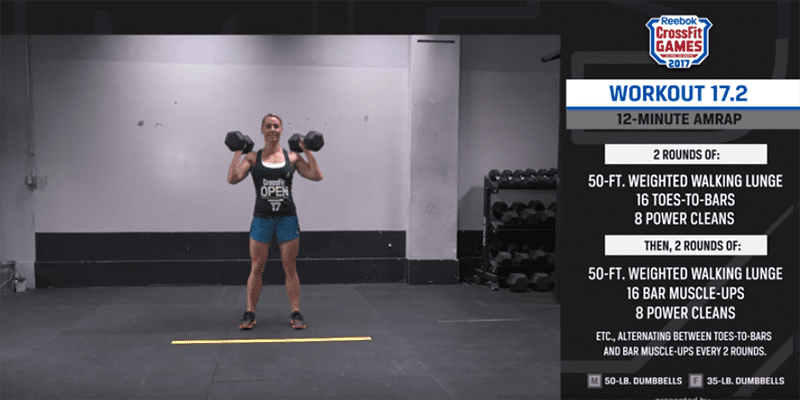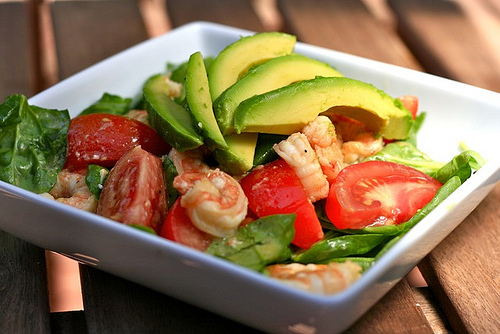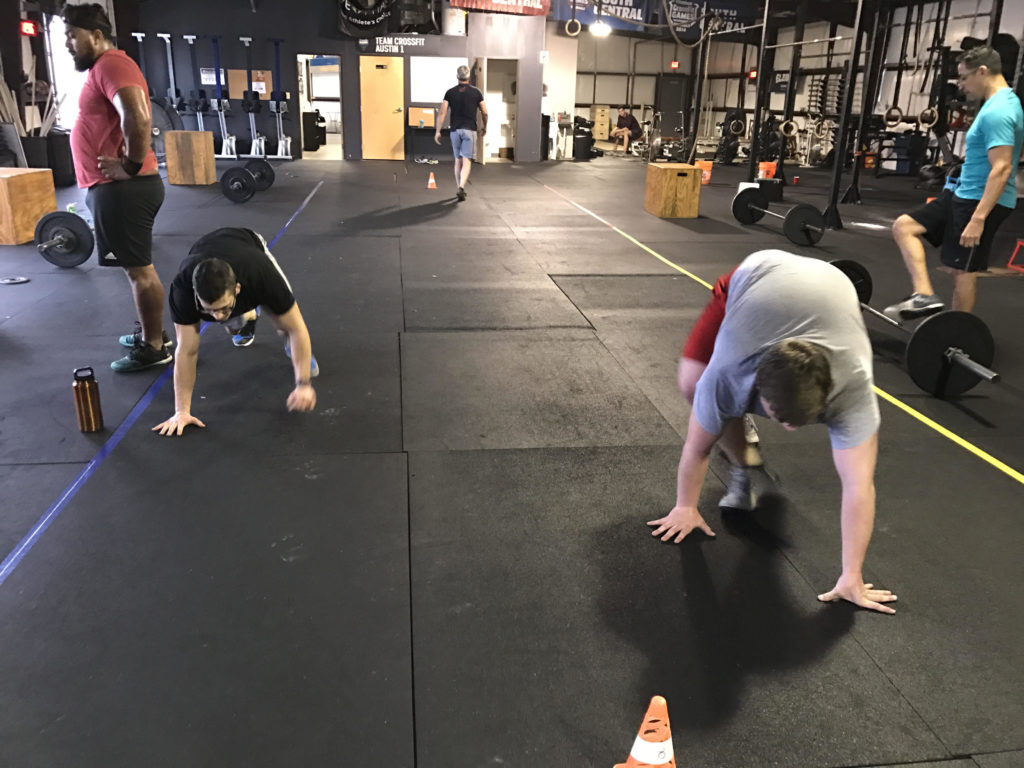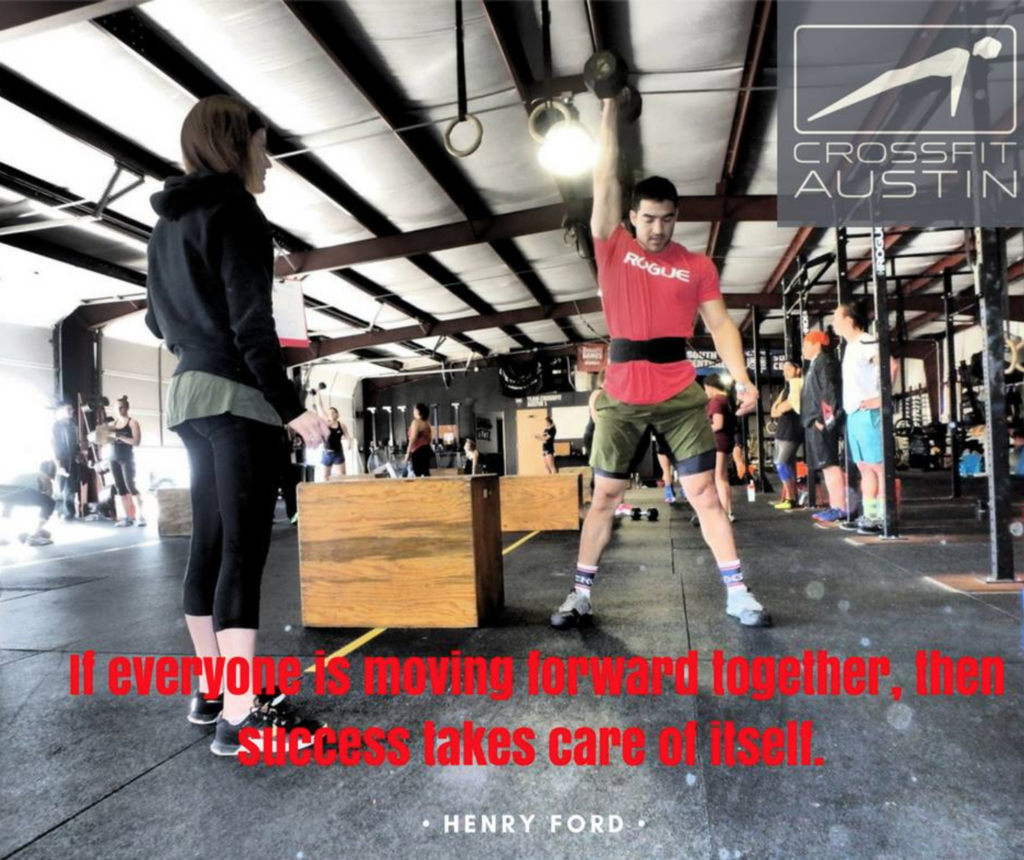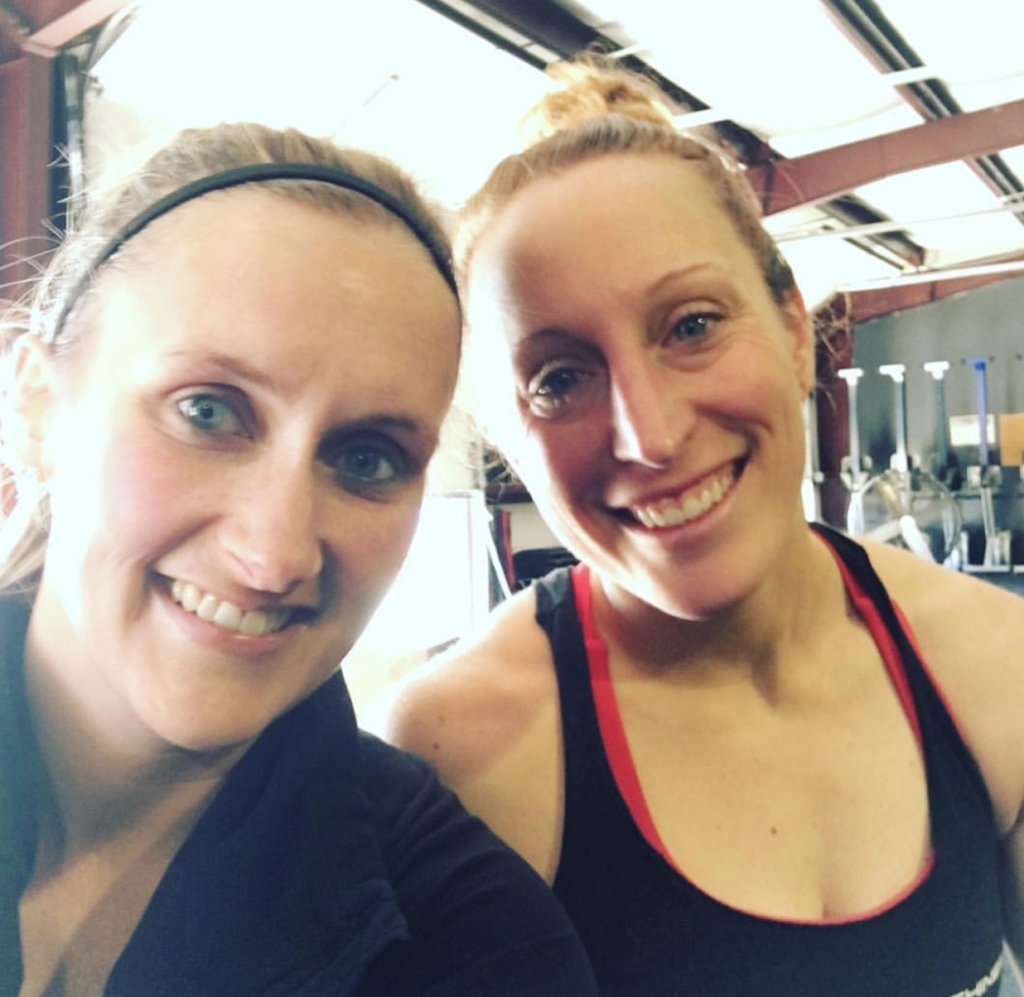Each month we spotlight a different CFA athlete who stands out and shows just how awesome they are. What is it that makes up an Athlete of the Month? It may not be the person that finishes the fastest, Rx’s every WOD, or gets a PR every time they walk in the gym. Although we love and celebrate when those things happen, the Athlete of the Month is made up of much more than physical ability. This person shows up, gives their best every time, and then gives a little more. They are hungry to learn and always ready to do the work. They support their fellow classmates and encourage them to reach their goals. This athlete embodies what we believe the CrossFit Austin Community should be about.
Our March Athlete of the Month is Bruce Cline! Bruce finished up fundamentals with Coach Tim and joined group classes in September of 2016. You’ll usually catch him with the 4:30 pm crew. Bruce has a fire for training that is tough to match. It’s been really exciting to see the progress he’s made in the short time he’s been here. He gives it all during class and puts in the extra work to reach his goals. All that work has certainly paid off in his time here! We’ve enjoyed Bruce’s positive attitude and watching his continuous gains over the last few months and we’re excited to see him continue to progress for many more years! Bruce, we are proud to have you as our March Athlete of the Month and as an awesome part of this community. Thanks for all your hard work! Congratulations!
State your Name and/or Nickname please:
Bruce Cline
Words to live by?
“Very little is needed to make a happy life; it is all within yourself, in your way of thinking.” Marcus Aurelius
What is your fitness background?
Organized sports in High School, Unorganized sports in College, Mountain Climber (many 14ers and soon to be a 19er).
How long have you been CrossFitting?
For two trimesters. The first 3 months were real pukey, the second 3 have been less pukey but the aches and pains have increased!
Take us back to your first day of CrossFit… How did you feel? How do you compare it to workouts today?
I was excited to learn new techniques and proper movements but I was pretty winded early in the lifts and would get nauseated quickly. Today, I can push the engine a little harder.
What’s your favorite part of CrossFit Austin?
The people. Everything that seems to divide our nation today (politics etc.) doesn’t enter this realm…I think it stays in our cars or at home or on Facebook LOL. We enter the gym as one group and that is a refreshing 1+ hours of good butt kicking.
Current Training Goals/PRs?
Do a muscle up in 2017.
Do double-under(s) in 2017
What advice do you have for folks just starting out in CrossFit?
Be patient. Look around the gym…if someone is killing a workout; I guarantee they have put in many hours or years. Don’t be afraid to work hard.
What is your cheat meal go to?
Mexican Food & Beer
Tell us about a moment you felt most proud of yourself during a workout.
Going a little harder when everything hurts. That decisive moment can come once in a workout or 100 times, but it feels good when you give it the middle finger and push harder.
If you could create a WOD and name it for yourself, what would it be?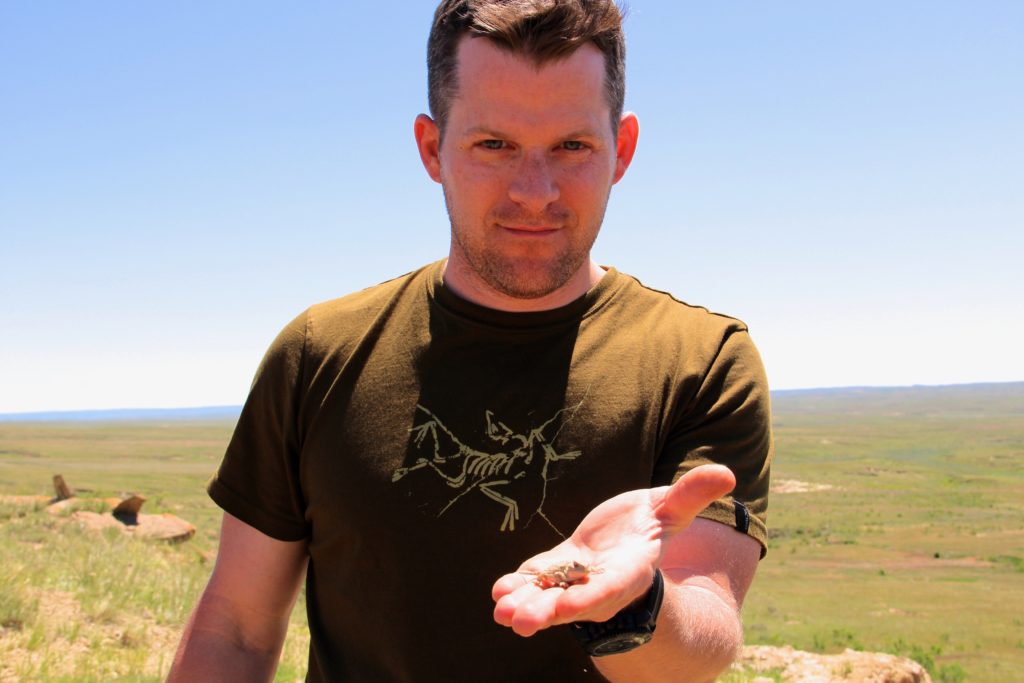
“Bruiser”
4 Rounds for time, no Cap
400m run with medicine ball (20lb/14lb)
10 reps deadlift at 60%
20 wall balls
20 push-ups
20 sit-ups
What are your hobbies, interests and/or talents outside of CrossFit?
Landscaping. I love fossils. I can ride a unicycle.
Tell us something we don’t know about you…
I discovered a juvenile triceratops (or part of it) on a dig in Wyoming. I touched something that lived 65 million years ago. I also have a T-Rex tooth and that is just badass.
Longhorns or Aggies?
I root for both of them.
Leave the fine folks of CrossFit Austin with some parting words…
“Everything is only for a day, both that which remembers and that which is remembered” Marcus Aurelius

